Two prestigious awards in a row
On October 28, Wang Hong, 34 years old, was named for the Salem Prize 2025 - an award honoring young mathematicians (under 40 years old) who have made outstanding contributions in the field of Fourier analysis and related fields.
She was honored for her groundbreaking contributions to major unsolved problems in harmonic analysis and geometric measure theory. In the mathematical community, the Salem Prize is considered a "stepping stone" towards the Fields Medal.
Also receiving the prize this year is Professor Vesselin Dimitrov (California Institute of Technology, USA), who is famous for his fundamental research in Diophantine geometry and number theory.

Fields Medalist mathematician Terence Tao immediately sent his congratulations to both.
Just a day earlier, Wang Hong had also won the ICCM Gold Medal, dubbed the “Fields Medal of the Chinese-speaking world.”
Winning two consecutive awards is considered a "signal" for Fields, Wang Hong is considered to be just one step away from this Medal.
She had previously topped the list of predicted potential candidates for the 2026 Fields Medal.
“Salem Prize Today, Fields Medal Tomorrow”
The Salem Prize was established in 1968 in memory of the French mathematician Raphaël Salem. There is a saying in academia: “Those who win the Salem Prize when they are young are more likely to win the Fields Medal in the future.”
In fact, 10 Salem Prize winners have gone on to win Fields, including Terence Tao himself – who received the Salem Prize in 2000 and won the Fields just six years later.
According to statistics, the possibility of winning a Fields Medal within 10 years of winning the Salem Prize is very high. With breakthroughs in classic problems such as the Kakeya conjecture, Wang Hong is expected to become the next Chinese mathematician to win a Fields Medal.
Professor Shing-Tung Yau, the first Chinese to receive the Fields Medal, also commented: "Wang Hong is the greatest and most important young scholar in China today."
In June this year, Wang Hong gave a lecture at Peking University. Wei Dongyi, known as China’s “mathematical Zen master,” came to listen to her lecture. He sat in the front row, took careful notes, and discussed with her after class.
This event is seen as a testament to Wang Hong's outstanding professional standing and reputation in the Chinese and international mathematical community.
Female math professor in her 90s: From Peking University's "genius training ground" to a young professor
Born in 1991 in Guilin (Guangxi) - a land famous for its "number one" scenery in China, Wang Hong grew up in a family with a tradition of studying, both parents were high school teachers.

From a young age, she showed special talent. At the age of 5, Wang Hong had mastered all the knowledge of grade 1 and was able to skip grade 2, then skip a grade again in elementary school.
Unlike her friends, Wang Hong has a habit of studying the program a whole semester in advance. For difficult problems, she does not rush to ask the teacher but finds documents, thinks and discusses with her friends. This habit helps her form an independent thinking and persistent research ability.
In 2007, at the age of 16, she entered Peking University with a score of 653, initially studying Earth and Space Sciences . A year later, because of her passion for mathematics, she transferred to the Department of Mathematics and began her journey of in-depth research.
After graduating, Wang Hong continued his studies at the École Polytechnique and the University of Paris-Sud, earning a bachelor's and master's degree in mathematics, respectively.
In 2019, she successfully defended her doctoral thesis at the Massachusetts Institute of Technology (MIT) under the guidance of Professor Larry Guth, a big name in harmonic analysis.
From there, her academic career progressed rapidly:
2021: Postdoctoral research at the Institute for Advanced Study in Princeton, then became an assistant professor at the University of California, Los Angeles (UCLA).
2023: Joined the Courant Institute of Mathematics (New York University).
2025: Awarded the title of full professor and holds the position of permanent professor at the French Institute for Advanced Scientific Research (IHES).
Decoding the holographic Kakeya hypothesis
Wang Hong is best known today for his work on solving the Kakeya conjecture in three-dimensional space, one of the most famous and difficult problems in geometric measure theory.
Her research focuses on harmonic analysis and geometric measure theory. She has previously made significant progress on major problems such as the Fourier restriction conjecture and the Falconer distance set conjecture.
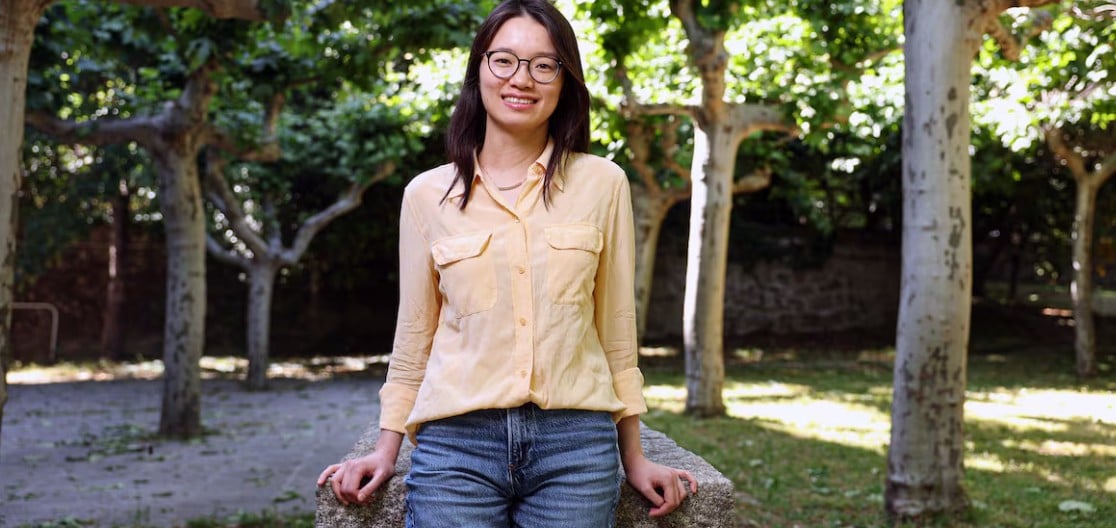
In 2022, Wang Hong received the new Maryam Mirzakhani Pioneer Award, which honors young female PhDs who have produced outstanding work in the first two years after defending their dissertations.
In 2023, she continued to receive the ICCM Best Paper Award. Her works regularly appear in the world's leading mathematical journals such as Annals of Mathematics, Inventiones Mathematicae and Duke Mathematical Journal.
By 2025, with Professor Joshua Zahl (Columbia University), she published a 127-page proof confirming that the Kakeya Conjecture had been solved.
Mathematician Terence Tao could not hide his excitement at that time: “One of the most famous problems in geometric measure theory – the Kakeya conjecture – has finally been proven in three dimensions by Wang Hong and Joshua Zahl.”
Source: https://vietnamnet.vn/nu-giao-su-toan-hoc-9x-gianh-lien-tiep-hai-giai-thuong-danh-gia-the-gioi-2458376.html





![[Photo] Prime Minister Pham Minh Chinh chairs the second meeting of the Steering Committee on private economic development.](https://vphoto.vietnam.vn/thumb/1200x675/vietnam/resource/IMAGE/2025/11/01/1762006716873_dsc-9145-jpg.webp)

















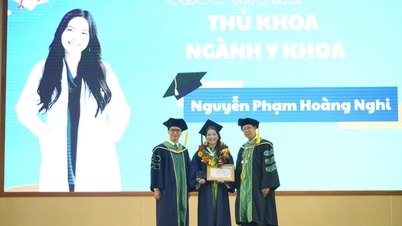

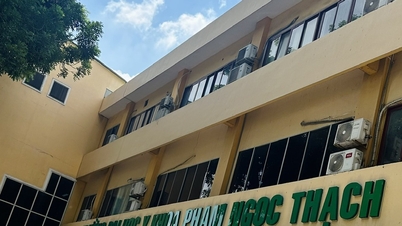









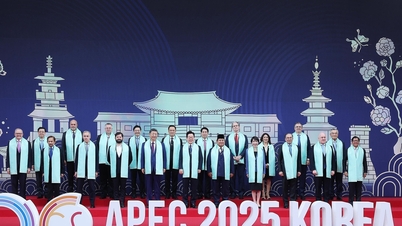













































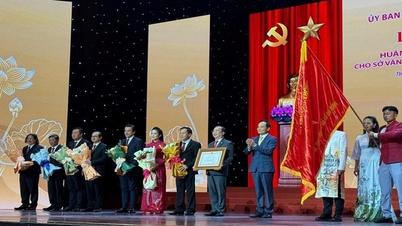






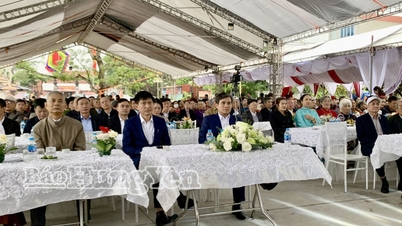






















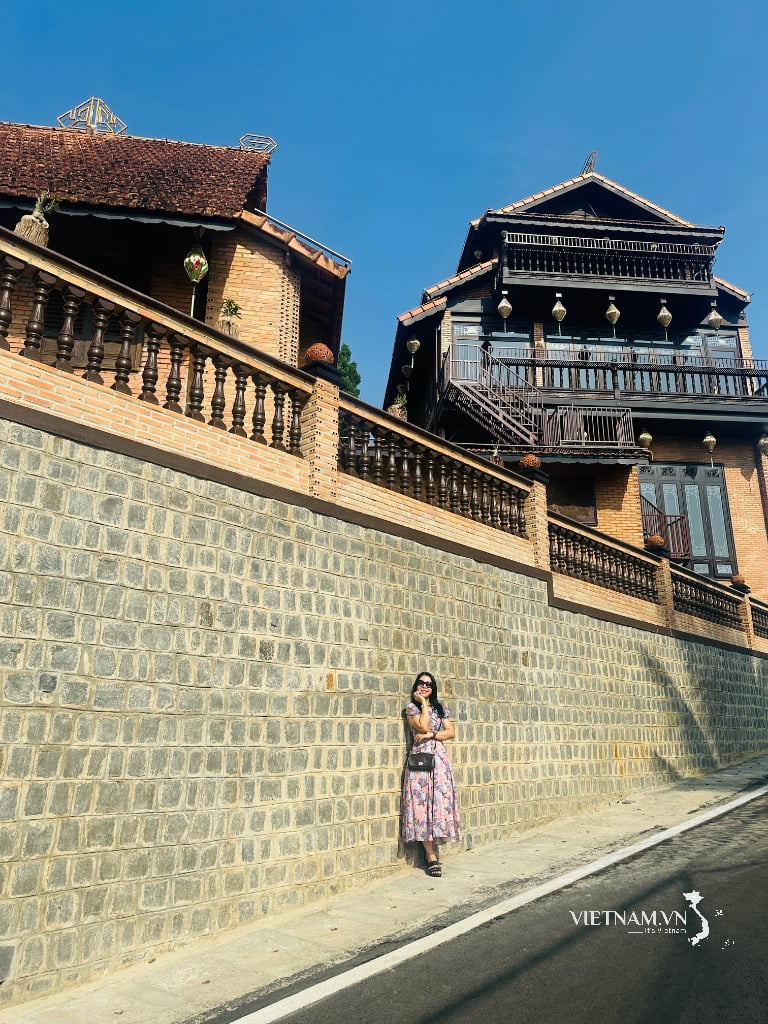

Comment (0)